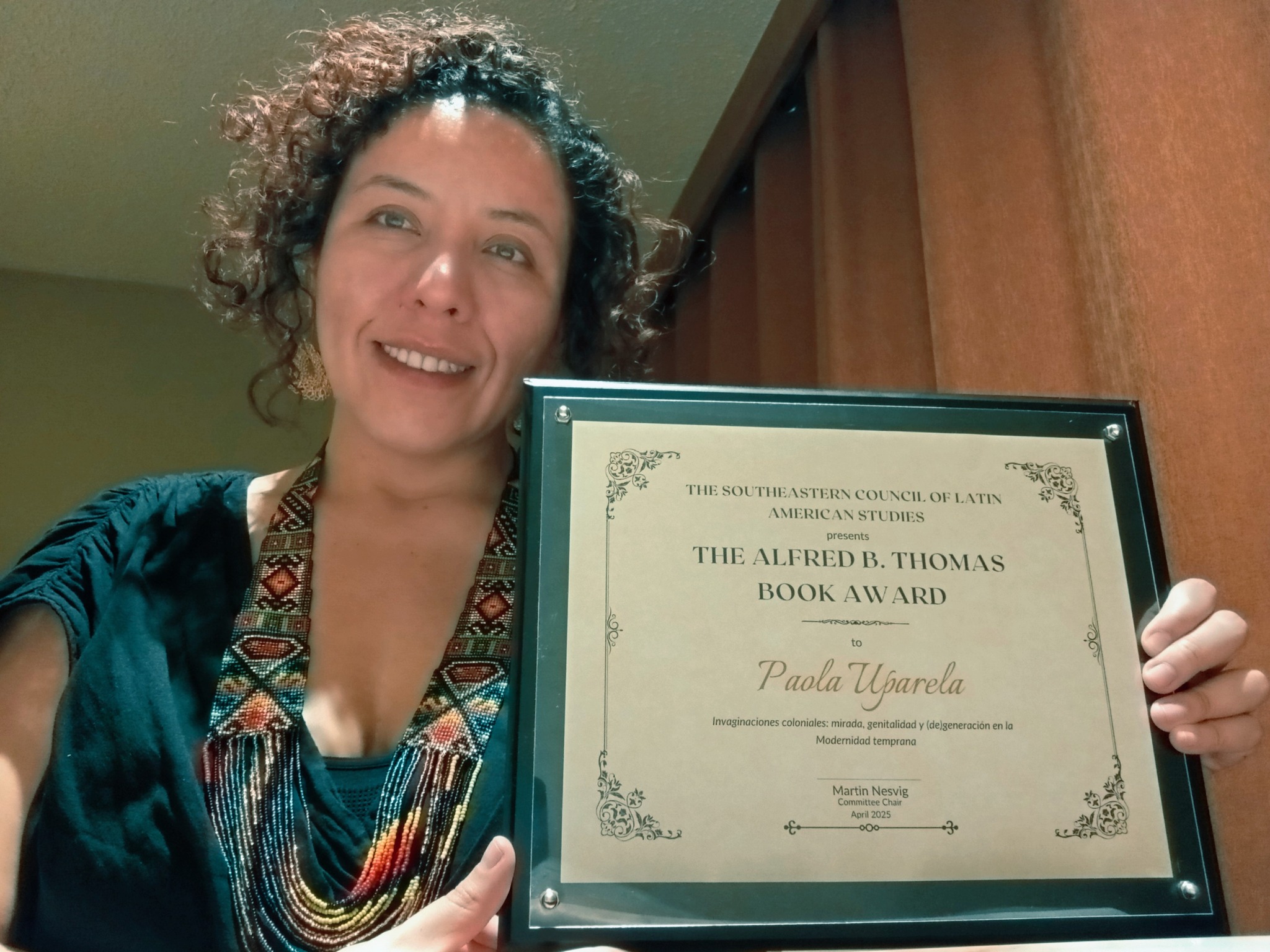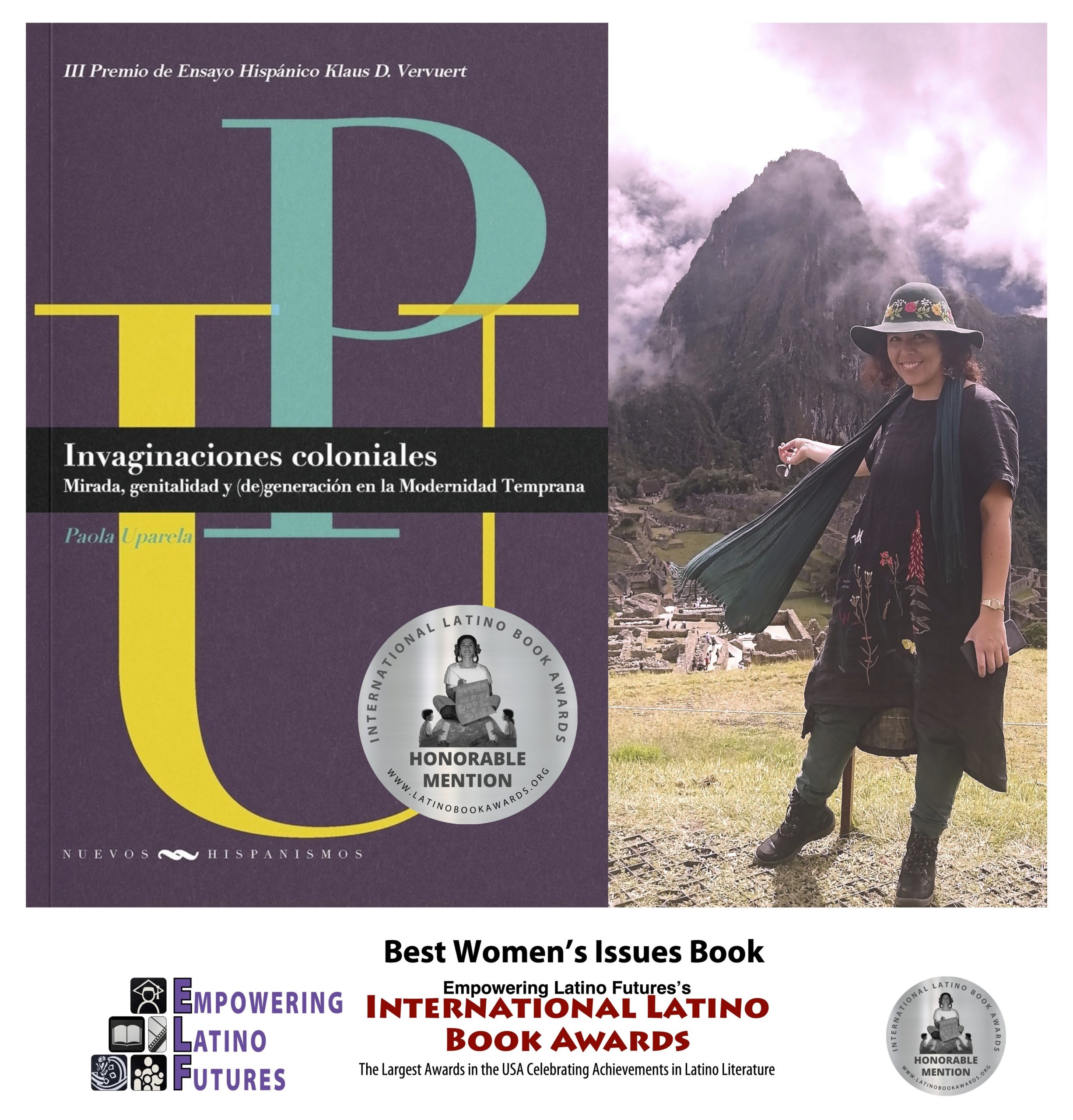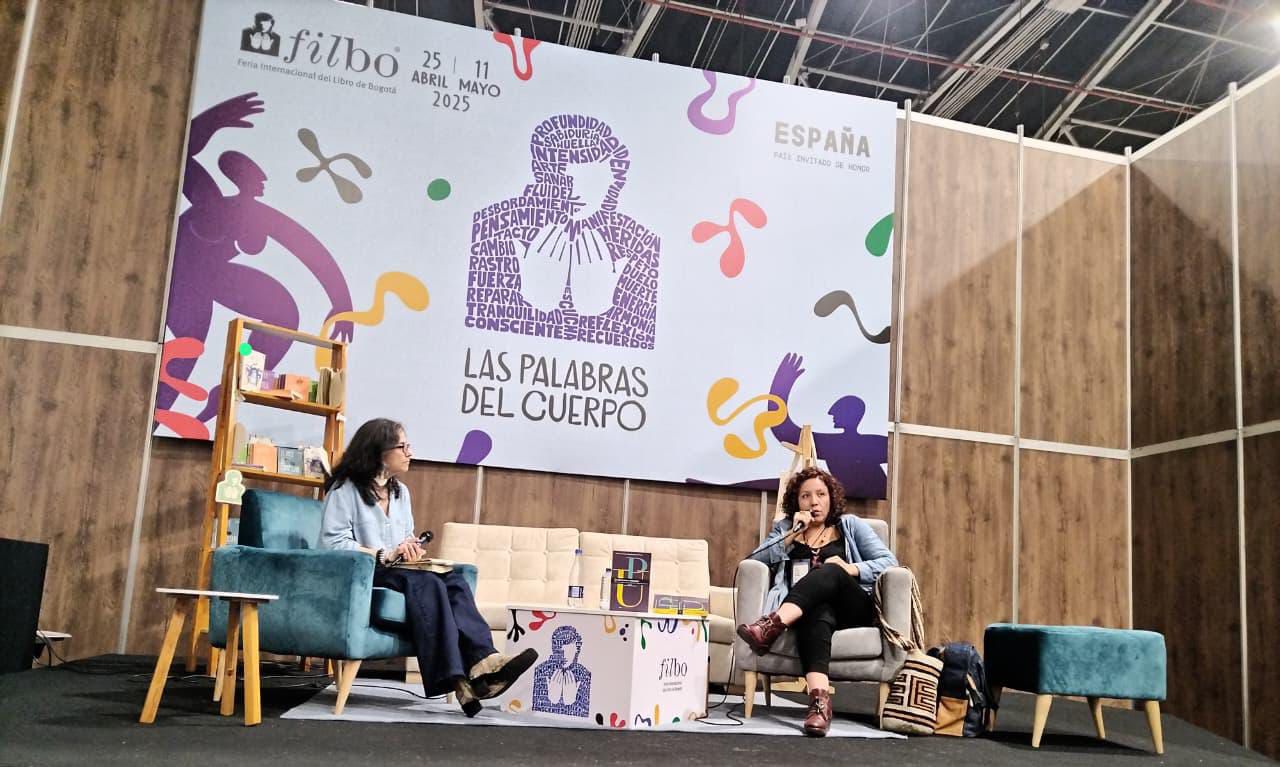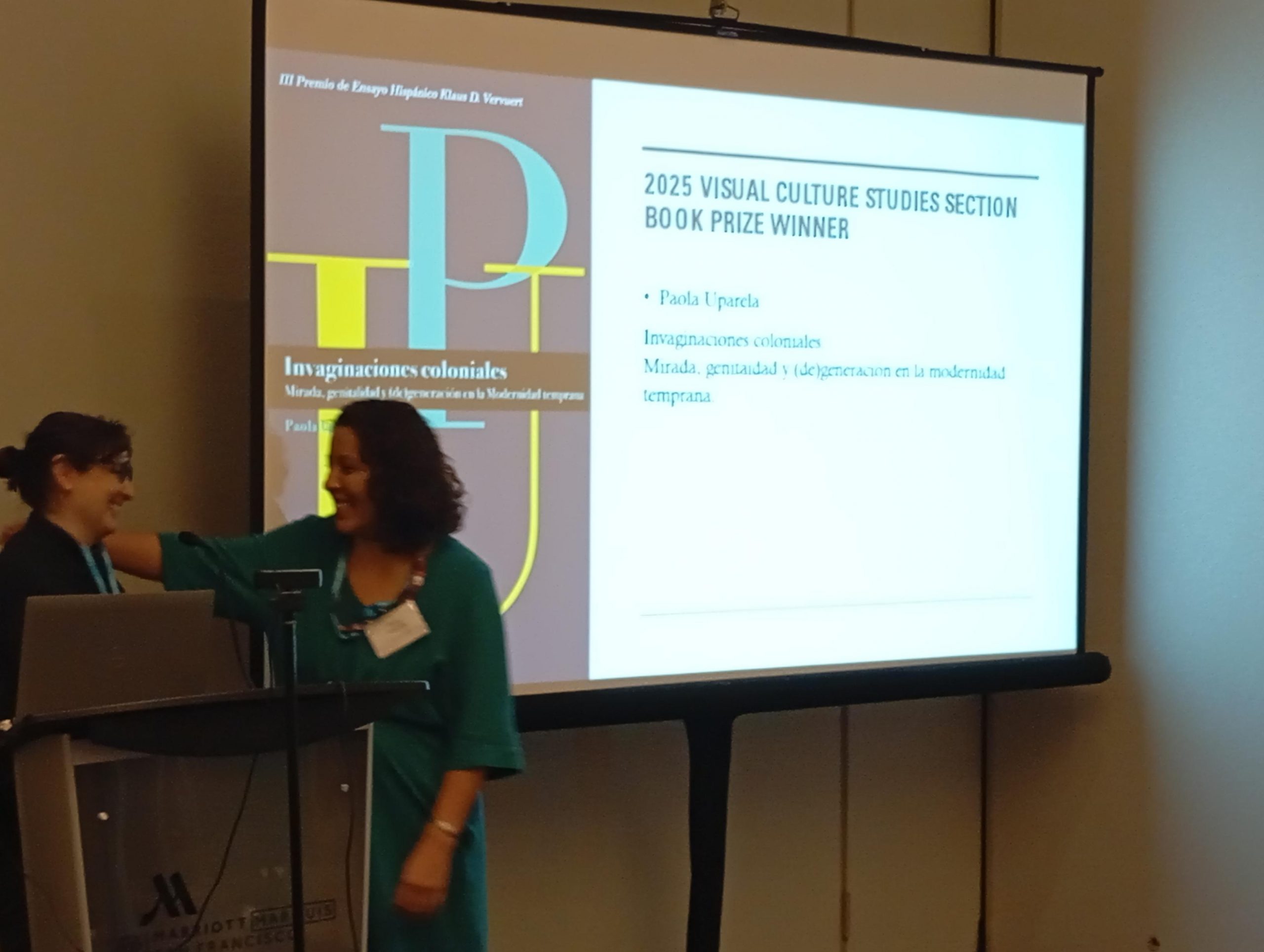Paola Uparela’s Colonial Invaginations Sweeps Five International Honors

The Department of Spanish and Portuguese Studies is proud to announce the extraordinary success of Professor Paola Uparela’s first book, “Colonial Invaginations” (Iberoamericana Vervuert), which has garnered five international distinctions for its originality and impact: the Klaus D. Vervuert Hispanic Essay Award from Iberoamericana Vervuert and the Cervantes Institute (2023); the Alfred B. Thomas Book Award from SECOLAS (2025); the LASA Visual Culture Studies Book Prize (2025); the Victoria Urbano Critical Monograph Award from the Association of Gender and Sexualities Studies (2025); and an Honorable Mention for Best Women’s Issues Book at the International Latino Book Awards (2025).

Uparela—who earned her Ph.D. from the University of Notre Dame in 2019 and received the 2020 Eli J. and Helen Shaheen Graduate School Award in Humanities—is a professor of Literature and Cultural Studies at the University of Florida. Specializing in colonial and transatlantic studies, history of medicine and art, gender and sexuality studies, Indigenous studies, visual culture and biopolitics, she examines how colonial knowledge systems rendered the female body ultra-visible, intelligible and reducible to sexual and reproductive functions across medicine, literature, and art. Reflecting the wider recognition of the humanities in histories of anatomy and medicine, she was recently elected to Sigma Xi, The Scientific Research Honor Society.
The book’s arguments—tracing how early colonial visualization and control of the female body were built during the first centuries of colonization in the Americas—unfold through a critical reading of European and American chroniclers and writers such as Columbus, Vespucci, Vaz de Caminha, Guaman Poma, Bartolomé de Las Casas, Cabeza de Vaca, Fernández de Oviedo, Eleno de Céspedes, Catalina de Erauso, and Sor Juana Inés de la Cruz. Demonstrating how the anatomical scrutiny of women intertwined with projects of exploitation, population control, and the regulation of difference, “Colonial Invaginations” combines theoretical boldness with historical precision to reshape debates in cultural studies, gender studies, visual culture and colonial/medical history.
Its influence has sparked vigorous international dialogue, with talks and launches in 2025 at the ICA Congress, University of Novi Sad (Serbia); the Institut d’Història de la Ciència, Universitat Autònoma de Barcelona (Spain); Iberoamericana Vervuert in Madrid; FILBO – Bogotá International Book Fair; U-Tópicas in Mexico City; Texas Tech University; Princeton University (PLAS and the Department of Spanish and Portuguese); the CUNY Graduate Center; and Boston University; and in 2024 at CALAS (Guadalajara), Georgetown University, Museo Colonial (Bogotá), and LASA Bogotá. Together, these awards and invitations affirm “Colonial Invaginations” as a landmark study and underscore UF’s leadership in humanities research with global reach.

